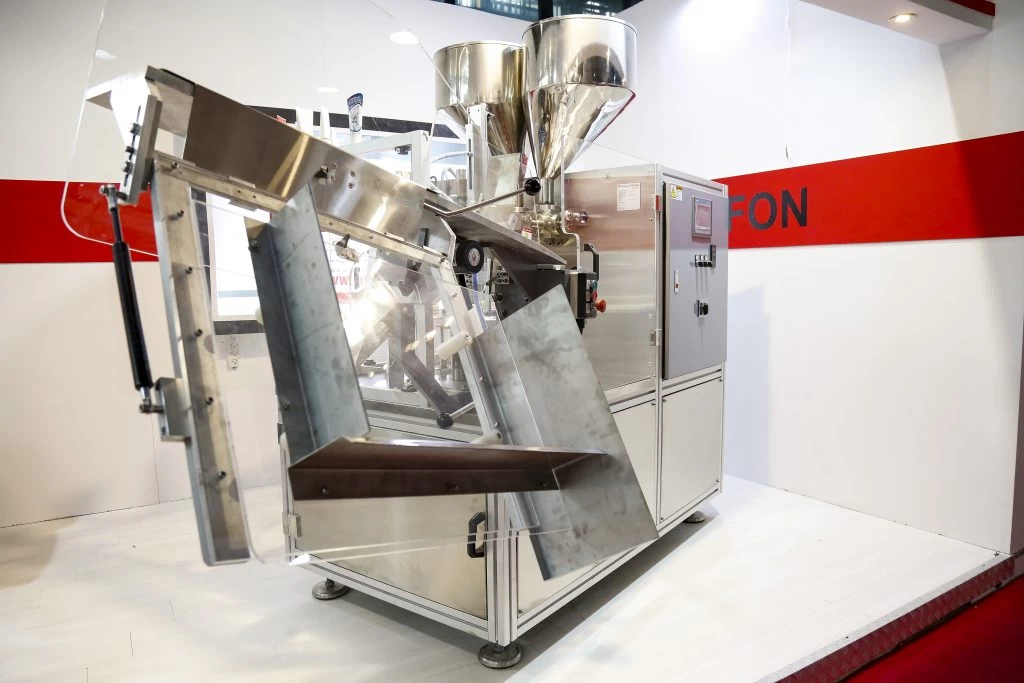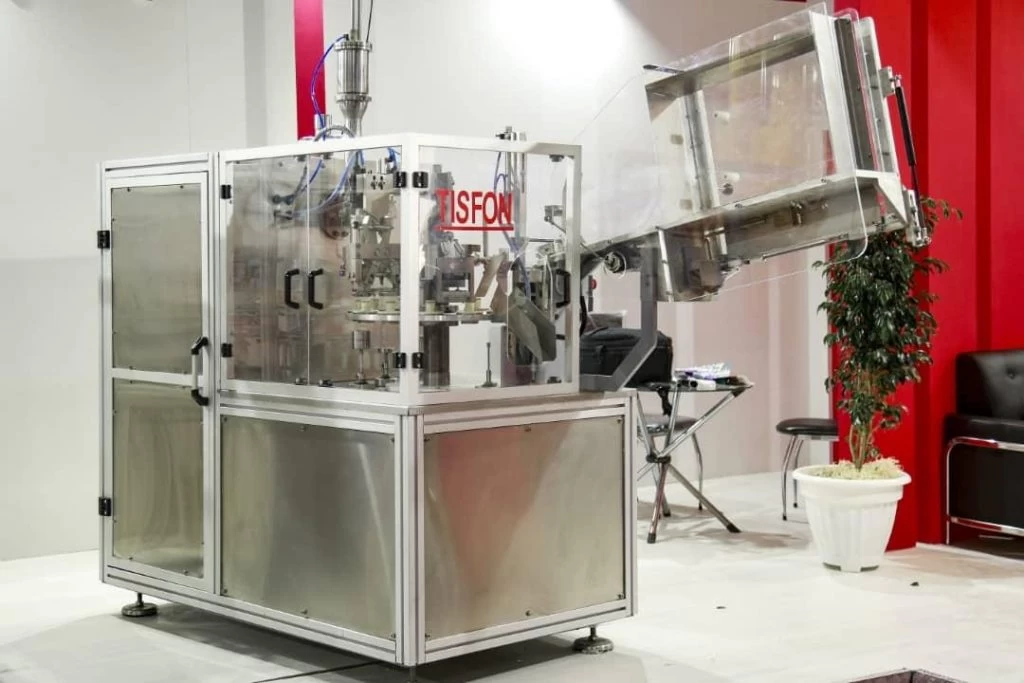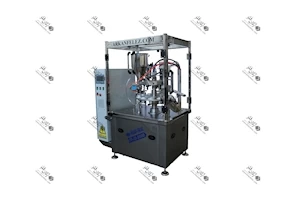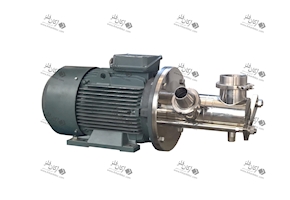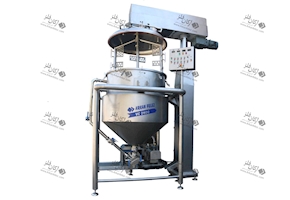cosmetic machinery
Cosmetic machinery refers to a wide range of specialized equipment and devices used in the cosmetic industry for the production, processing, and packaging of cosmetic products.
These machines play a crucial role in ensuring the efficiency, precision, and quality of cosmetic manufacturing processes.
1. Manufacturing Machinery:
- Mixing and Blending Machines: These machines are used to mix and blend different ingredients to create cosmetic formulations. They ensure uniformity and consistency in the mixture, resulting in high-quality products.
- Emulsifying Machines: Emulsifiers are used to blend immiscible substances, such as oil and water, to form stable emulsions. Emulsifying machines facilitate the emulsification process, ensuring the proper texture and stability of cosmetic products like creams and lotions.
- Filling and Sealing Machines: These machines are employed for filling cosmetic products into various types of containers, such as bottles, tubes, or jars. They ensure accurate filling and efficient sealing, maintaining product integrity and preventing contamination.
- Pressing Machines: Presses are utilized for compacting powdered cosmetic products, such as eyeshadows, blushes, and powders, into pans or compacts. They provide the required pressure to create well-formed and visually appealing products.
2. Packaging Machinery:
- Labelling Machines: Labelling machines apply labels with product information, branding elements, and regulatory requirements onto cosmetic containers. They ensure accurate and consistent labeling, enhancing product identification and compliance.
- Capping Machines: Cappers are used for securely sealing cosmetic containers with caps or lids. They ensure proper closure, preventing leakage or contamination, and maintaining product freshness and integrity.
- Wrapping Machines: Wrappers are employed for packaging cosmetic products in protective materials, such as shrink wraps or films. They provide a secure and visually appealing packaging solution, enhancing product presentation and preservation.
- Cartoning Machines: Cartoners automate the process of placing cosmetic products into cartons or boxes. They improve packaging efficiency, reduce manual labor, and enable mass production of cosmetic items.
3. Quality Control and Testing Equipment:
- Viscometers: Viscometers measure the viscosity or flow properties of cosmetic liquids and creams. They help maintain consistency in product formulations and ensure that products meet desired texture and application characteristics.
- pH Meters: pH meters are used to measure the acidity or alkalinity of cosmetic formulations. They ensure that products are within the desired pH range, which is critical for skin compatibility and stability.
- Particle Size Analyzers: These devices measure the size distribution of particles in cosmetic products. They are used to monitor the quality and performance of products like exfoliators, scrubs, and powders.
- Microbiological Testing Equipment: These instruments are employed to assess the microbial load and safety of cosmetic products. They detect and quantify the presence of harmful microorganisms, ensuring product safety and compliance with regulatory standards.
Cosmetic machinery plays a vital role in the cosmetic industry by optimizing production processes, ensuring product consistency, and maintaining high quality. These advanced machines contribute to the efficient and safe manufacturing of a wide range of cosmetic products that enhance beauty, skincare, and personal care.
The cosmetic manufacturing process involves several complex stages, and various challenges can arise along the way.
_1711815793.jpg)
Some common challenges in cosmetic manufacturing include:
1. Regulatory Compliance: The cosmetic industry is heavily regulated, and manufacturers must comply with numerous regulations and guidelines related to product safety, labeling, ingredient restrictions, and manufacturing practices. Keeping up with evolving regulations and ensuring compliance can be a significant challenge.
2. Ingredient Sourcing and Supply Chain Management: Cosmetic manufacturers often face challenges in sourcing high-quality ingredients from reliable suppliers. Ensuring a stable and consistent supply of raw materials can be challenging, especially when dealing with natural or exotic ingredients. Effective supply chain management is crucial to avoid disruptions and maintain product consistency.
3. Formulation Stability: Developing stable formulations that maintain their integrity, appearance, texture, and efficacy over time can be challenging. Factors such as ingredient interactions, pH, temperature, and exposure to light and air can affect the stability of cosmetic products. Extensive testing and formulation adjustments are often required to achieve desired stability.
4. Product Homogeneity and Batch-to-Batch Consistency: Achieving consistent product quality and uniformity from batch to batch is essential in cosmetic manufacturing. Challenges may arise in ensuring uniform mixing and blending of ingredients, maintaining consistent viscosity, and achieving even distribution of pigments and additives. Quality control measures and standardized processes are necessary to address these challenges.
5. Packaging Compatibility: Selecting appropriate packaging materials that are compatible with the cosmetic formulation is crucial. Compatibility issues can arise when certain ingredients interact with packaging materials, leading to product deterioration, leakage, or contamination. Testing packaging materials for compatibility and durability is essential to ensure product integrity.
6. Scalability and Production Efficiency: As demand for cosmetic products increases, manufacturers face the challenge of scaling up production while maintaining efficiency. Optimizing manufacturing processes, implementing automation where feasible, and streamlining workflow are essential to meet market demands without compromising quality.
7. Quality Control and Testing: Ensuring product quality and safety through rigorous quality control and testing is a significant challenge in cosmetic manufacturing. Testing for microbiological contamination, stability, efficacy, and compliance with regulatory standards requires specialized equipment, trained personnel, and comprehensive testing protocols.
8. Sustainability and Environmental Impact: Increasing consumer demand for sustainable and environmentally friendly cosmetic products poses challenges for manufacturers. Developing eco-friendly formulations, implementing sustainable packaging solutions, and minimizing waste generation throughout the manufacturing process are important considerations.
_1711815828.jpg)
Addressing these challenges requires a combination of technical expertise, stringent quality control measures, effective supply chain management, and a commitment to ongoing research and development. Adapting to evolving regulations and consumer preferences is crucial for cosmetic manufacturers to remain competitive in the industry.
- Mixing and Blending Machines: These machines are used to mix and blend different ingredients to create cosmetic formulations. They ensure uniformity and consistency in the mixture, resulting in high-quality products.
- Emulsifying Machines: Emulsifiers are used to blend immiscible substances, such as oil and water, to form stable emulsions. Emulsifying machines facilitate the emulsification process, ensuring the proper texture and stability of cosmetic products like creams and lotions.
- Filling and Sealing Machines: These machines are employed for filling cosmetic products into various types of containers, such as bottles, tubes, or jars. They ensure accurate filling and efficient sealing, maintaining product integrity and preventing contamination.
- Pressing Machines: Presses are utilized for compacting powdered cosmetic products, such as eyeshadows, blushes, and powders, into pans or compacts. They provide the required pressure to create well-formed and visually appealing products.
- Labelling Machines: Labelling machines apply labels with product information, branding elements, and regulatory requirements onto cosmetic containers. They ensure accurate and consistent labeling, enhancing product identification and compliance.
- Capping Machines: Cappers are used for securely sealing cosmetic containers with caps or lids. They ensure proper closure, preventing leakage or contamination, and maintaining product freshness and integrity.
- Wrapping Machines: Wrappers are employed for packaging cosmetic products in protective materials, such as shrink wraps or films. They provide a secure and visually appealing packaging solution, enhancing product presentation and preservation.
- Cartoning Machines: Cartoners automate the process of placing cosmetic products into cartons or boxes. They improve packaging efficiency, reduce manual labor, and enable mass production of cosmetic items.
- Viscometers: Viscometers measure the viscosity or flow properties of cosmetic liquids and creams. They help maintain consistency in product formulations and ensure that products meet desired texture and application characteristics.
- pH Meters: pH meters are used to measure the acidity or alkalinity of cosmetic formulations. They ensure that products are within the desired pH range, which is critical for skin compatibility and stability.
- Particle Size Analyzers: These devices measure the size distribution of particles in cosmetic products. They are used to monitor the quality and performance of products like exfoliators, scrubs, and powders.
- Microbiological Testing Equipment: These instruments are employed to assess the microbial load and safety of cosmetic products. They detect and quantify the presence of harmful microorganisms, ensuring product safety and compliance with regulatory standards.
_1711815793.jpg)
_1711815828.jpg)
FAQs
How does cosmetic machinery contribute to improving the efficiency and precision of beauty product manufacturing processes?
Cosmetic machinery improves efficiency and precision through uniform mixing, automated packaging, and optimized workflow, resulting in consistent high-quality beauty products.
What are some key features and capabilities of modern cosmetic machinery that enable manufacturers to meet quality standards and regulatory compliance?
Modern cosmetic machinery features accurate measurement and mixing, temperature and pressure control, automated quality control, hygienic design, versatility, data logging, user-friendly interfaces, and integration with Industry 4.0 technologies to meet quality standards and regulatory compliance.
How does cosmetic machinery address common challenges in the cosmetic manufacturing process, such as ingredient sourcing, formulation stability, and batch-to-batch consistency?
Cosmetic machinery addresses challenges in ingredient sourcing by ensuring consistent quality and reliable supply. It enhances formulation stability through precise mixing and control of processing conditions. Additionally, it promotes batch-to-batch consistency by automating processes and minimizing human error.
What role does automation play in cosmetic machinery, and how does it enhance production efficiency and scalability in the cosmetic industry?
Automation in cosmetic machinery improves production efficiency and scalability by reducing manual labor, minimizing errors, increasing throughput, and enabling consistent and precise manufacturing processes.
 +7929688-88-14
+7929688-88-14

 English
English
 Persian
Persian
 Russian
Russian
 Chinese
Chinese


 +7929688-88-14
+7929688-88-14

